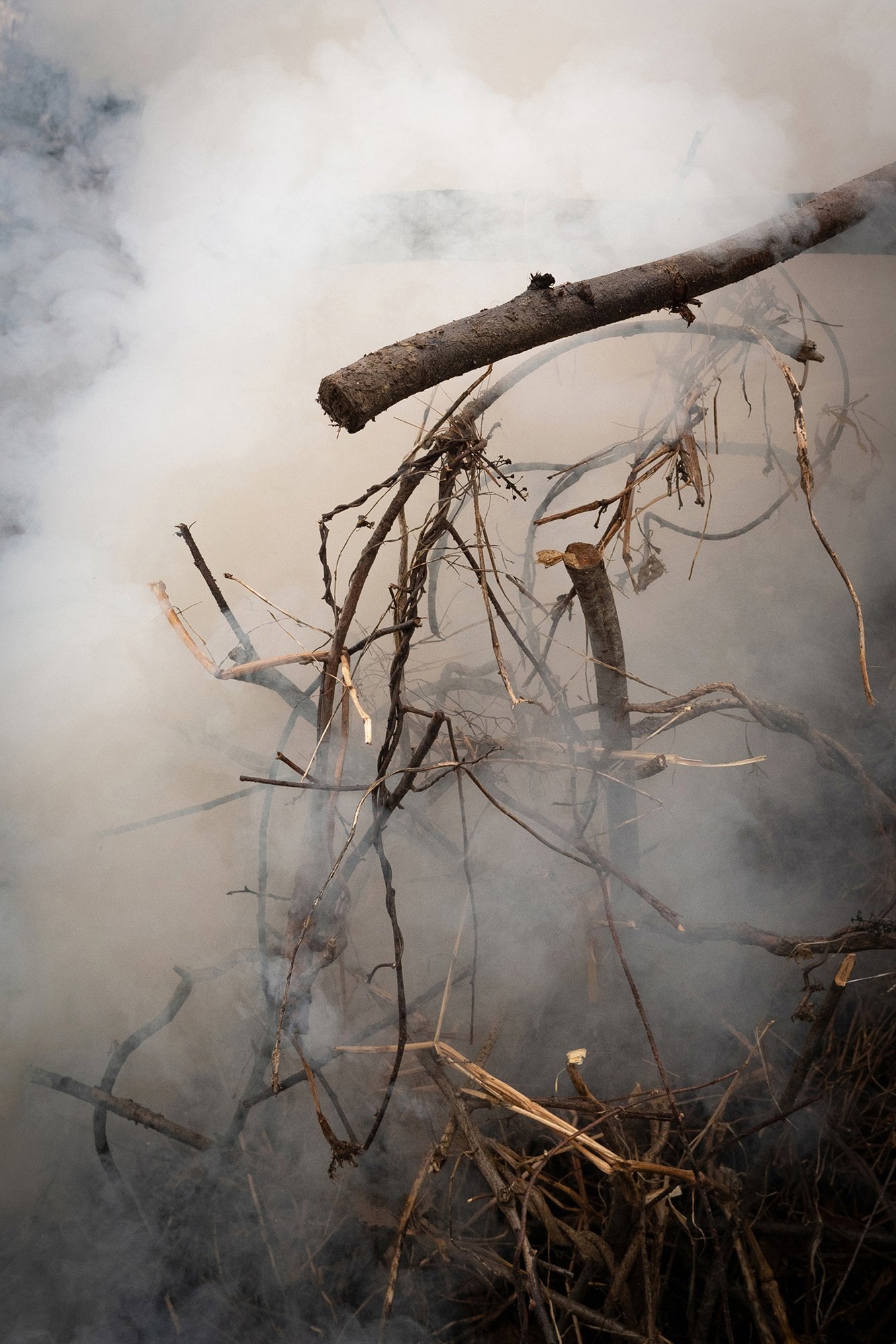ellen Harasimowicz
We are just so pleased to feature the works of Ellen Harasimowicz. Ellen is a MA based documentary and fine art photographer. She worked as a documentary photographer for the Boston Globe and has published a number of nature related children’s books and her assignments and personal projects have taken her to over thirty nations, including remote regions such as Nagaland in Northeast India, where she photographed various ethnic groups, and the Andaman Sea in Myanmar. She recently received her MFA in Photography from Maine Media College. Her works have been exhibited in the Griffin Museum of Photography, the Concord Museum in Concord MA, the legendary, Lenscratch and the Smithsonian Magazine. We are so happy to feature her thoughtful beautiful works. - Steven Duede
Thoughts on Living Like Grass
I was intrigued when Steven suggested the work of Ellen Harasimowicz for this end-of- summer feature on Aspect. Tomatoes are ripe, corn is being harvested, and Fall is around the corner. Yet, these works document the passage of time in a way I initially thought was out of my comfort zone.
As I spent time with them, they grew in familiarity. I approached going through the series with the words of the primary farmer of Willard Farm, Paul Willard, in my mind. He described the farm’s transition over its multi-generational life saying, “and someday, slow will be indeterminable from still. And then we’ll be done.” These are images that are filled with life, but also make clear that it is a way of life nearing stillness.
Living Like Grass takes the viewer from the wide-open landscape all the way down into the delicate abstractions of mud puddles on the ground. The way the life and the work of the farm comes alive through the muted light and vibrant color of the landscape and the harvest is breathtaking. The viewer feels the “behind-the-scenes” images of Paul and Wendell at work; their labor is etched into worn farm machinery, hunched shoulders, and overburdened office space. These are photographs about place-making and documenting how space and time define a life, and, significantly, what happens when that way of life reaches an end.
Jessica Roscio, Curator and Director of the Danforth Museum and amazing Aspect contributor
Willard Farm became my refuge and my muse. I witnessed the beauty of nature's cycles repeating and the overwhelming toll this ceaseless work takes on the farmers.
LIVING LIKE GRASS
We all live in nature, but some live in it more intimately. Small-family farmers make their mark on the land, and the land provides nourishment and income for their families. They are the backbone of American agriculture, but earning a living wage is difficult, and finding hired help is nearly impossible. Operating expenses are rising, weather extremes are causing erratic crop yields, and farmers are aging out. For many, this way of life is vanishing.
I've been coming to Willard Farm in Still River, Massachusetts for almost three decades to buy sunflowers, corn, tomatoes, and pumpkins. For nearly 350 years, nine generations of Willards have lived and farmed here, rooted in the same soil as their ancestors going back to the Nashaway people. But several years ago, I noticed fewer offerings at the farm stand. The primary farmer, Paul Willard, is in his 80s and moves more slowly now. He shares the family farmhouse with his brother Wendell, a cabinetmaker, and Wendell's wife, Elizabeth, a poet. The title of this project is from one of her poems.
For the last 20 years, I’ve photographed the farm, interested not only in the legacy of this land but also in the details of farm life. During the pandemic, when just about everything shut down, farmers still planted crops, and farm stands remained open. Willard Farm became my refuge and my muse. I witnessed the beauty of nature's cycles repeating and the overwhelming toll this ceaseless work takes on the farmers.
When I asked Paul what his plans were for the future, he said, “I don’t have any real plans. I think I’m just going to wind down. Keep doing what I’m doing, but less of it, and slower. And someday, slow will be indeterminable from still. And then we’ll be done.” That was in the summer of 2020. Today, the fields are fallow except for a small kitchen garden. In the spring, Paul and Wendell sell small tomato and basil plants grown in their greenhouse, but their farm stand is closed the rest of the year. No one, not even Paul Willard, imagined the end was so near. -Ellen
Ellen
photo by @Kathryn Costello
Ellen Harasimowicz
Ellen began her career in documentary photography, working primarily for the Boston Globe, and later specialized in education and NGO photography. Harasimowicz has produced award-winning children's books about nature with publishers Houghton Mifflin Harcourt, Henry Holt, Millbrook, and Charlesbridge. Assignments and personal projects have taken Harasimowicz to more than thirty countries, including remote locations like Nagaland in Northeast India, where she photographed various ethnic groups, and the Andaman Sea in Myanmar, where her work focused on the Moken who traditionally have lived a semi-nomadic life on the water but now must live on the land. During the pandemic, Harasimowicz stayed close to home and documented the end of a small family farm in Still River, Massachusetts after nearly 350 years. Currently, she is working on a project about apples with a local orchardist/writer/sculptor and a more extensive project about four women who own and operate multi-generational orchards in her hometown of Harvard, Massachusetts.
In 2022, Harasimowicz received her MFA in Photography from Maine Media College. Visit Ellen
















